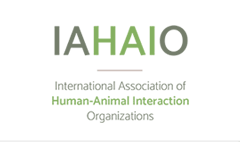Abstract
Background: Many people are attached to their pets. This attachment shares characteristics with the parental attachment to children. Previous studies have established a sex difference in attitudes about children; women compared to men report more positive attitudes about children. However, whether this sex difference is attenuated by owning and caring for pet(s) has not been investigated. Methods: In a sample of non-parents, we investigated the following: (1) whether the established main effect of sex on attitudes about children was moderated by pet ownership using a 2 (male, female) x 2 (pet owner, non–pet owner) design; and (2) whether the established main effect of sex on attitudes about children was moderated by lifetime experiences caring for pets using hierarchical multiple linear regression models. Data was collected via online survey of a community sample (n = 173). Results: We found that compared to females, males had more negative reactions to children and childcare (NRC). However, a significant sex by current pet ownership interaction revealed that current pet ownership eliminated the sex difference on NRC; males’ NRC scores were similar to females’ scores exclusively among people who currently owned a pet. Further, regression analyses revealed that the relationship between sex and NRC was moderated by the extent of lifetime experiences caring for pets. This effect was driven by males but not females; compared to males with low levels of lifetime experiences caring for pets, males with high levels of lifetime experiences caring for pets had less NRC. Conclusion: Taken together, these results provide the first reported evidence of the positive association between current pet ownership/lifetime experiences caring for pets and more favorable attitudes about children and childcare in non-parent males, but not in non-parent females.
Recommended Citation
Dudin, Aya; Almanza-Sepulveda, Mayra Linne; Cost, Katherine T.; Hall, Geoffrey B.; Fleming, Alison S.; and Freedman, Jonathan
(2022)
"Interactions Between Sex and Pet Ownership on Attitudes Toward Children,"
People and Animals: The International Journal of Research and Practice: Vol. 5
:
Iss.
1,
Article 7.
Available at:
https://docs.lib.purdue.edu/paij/vol5/iss1/7


